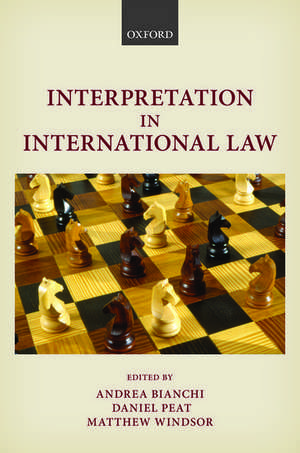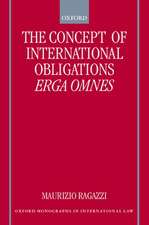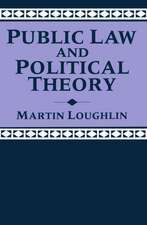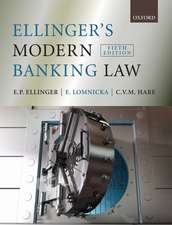Interpretation in International Law
Editat de Andrea Bianchi, Daniel Peat, Matthew Windsoren Limba Engleză Hardback – 25 feb 2015
| Toate formatele și edițiile | Preț | Express |
|---|---|---|
| Paperback (1) | 265.09 lei 32-37 zile | |
| OUP OXFORD – 3 mai 2018 | 265.09 lei 32-37 zile | |
| Hardback (1) | 851.57 lei 32-37 zile | |
| OUP OXFORD – 25 feb 2015 | 851.57 lei 32-37 zile |
Preț: 851.57 lei
Preț vechi: 1136.94 lei
-25% Nou
Puncte Express: 1277
Preț estimativ în valută:
162.95€ • 174.25$ • 135.86£
162.95€ • 174.25$ • 135.86£
Carte tipărită la comandă
Livrare economică 07-12 aprilie
Preluare comenzi: 021 569.72.76
Specificații
ISBN-13: 9780198725749
ISBN-10: 0198725744
Pagini: 432
Dimensiuni: 164 x 240 x 30 mm
Greutate: 0.78 kg
Editura: OUP OXFORD
Colecția OUP Oxford
Locul publicării:Oxford, United Kingdom
ISBN-10: 0198725744
Pagini: 432
Dimensiuni: 164 x 240 x 30 mm
Greutate: 0.78 kg
Editura: OUP OXFORD
Colecția OUP Oxford
Locul publicării:Oxford, United Kingdom
Recenzii
There is much to commend here: the creativity on display, the eclectic range of topics canvassed, the way in which the volume brings together established and emerging scholars from a range of interpretive traditions. This thoughtful collection of essays is a valuable companion for those who face problems of interpretation in international law.
Owing to the excellent level of its contributions and original structure, Interpretation in International Law represents a timely and innovative addition to the literature. . . [O]ffering invaluable insight on the nature and implications of interpretive mechanics and strategies, it will undoubtedly assist scholars of international law fascinated with interpretation as well as those interested in more general and systemic issues.
Interpretation in International Law is an original and thought-provoking edited volume dealing with a challenging issue of international legal theory, an issue that has a bearing on the way international legal interpretation is understood and ultimately conducted.
This book is a most valuable contribution that will surely be well received and widely quoted. It circles around the metaphor of game playing, which helps to explain many aspects of the interpretative process. Interpretation is a fascinating topic, and I do hope that this well-researched and well-written book prompts further research on interpretation in international law, its theory and its practice.
Interpretation in International Law is explicitly different from much of the existing literature, and because of its perspective the book manages to add something new to that literature ... Its game analogy is an interesting and creative perspective on interpretation in international law ... [T]he different chapters show it can be employed to extract interesting results from practices that have hitherto primarily been analysed from positivist perspectives.
Owing to the excellent level of its contributions and original structure, Interpretation in International Law represents a timely and innovative addition to the literature. . . [O]ffering invaluable insight on the nature and implications of interpretive mechanics and strategies, it will undoubtedly assist scholars of international law fascinated with interpretation as well as those interested in more general and systemic issues.
Interpretation in International Law is an original and thought-provoking edited volume dealing with a challenging issue of international legal theory, an issue that has a bearing on the way international legal interpretation is understood and ultimately conducted.
This book is a most valuable contribution that will surely be well received and widely quoted. It circles around the metaphor of game playing, which helps to explain many aspects of the interpretative process. Interpretation is a fascinating topic, and I do hope that this well-researched and well-written book prompts further research on interpretation in international law, its theory and its practice.
Interpretation in International Law is explicitly different from much of the existing literature, and because of its perspective the book manages to add something new to that literature ... Its game analogy is an interesting and creative perspective on interpretation in international law ... [T]he different chapters show it can be employed to extract interesting results from practices that have hitherto primarily been analysed from positivist perspectives.
Notă biografică
Andrea Bianchi is Professor of International Law and Head of the International Law Department at The Graduate Institute of International and Development Studies, Geneva. Previously, he was a Professor at the Catholic University, Milan, Associate Professor at the University of Parma and Professorial Lecturer in International Law at the Bologna Centre of Johns Hopkins University. He has researched and published extensively on various aspects of public international law, with a particular emphasis on theoretical and methodological issues.Daniel Peat is a PhD candidate in Law at the University of Cambridge. He is a member of Gonville & Caius College, and a recipient of the WM Tapp Studentship in Law. He is a graduate of The Graduate Institute, Geneva and the London School of Economics, and has been a visiting researcher/scholar at Harvard Law School, the Max Planck Institute for Comparative Public Law and International Law, and Sciences Po, Paris. He has taught in the Faculty of Law and Department of Politics and International Studies at the University of Cambridge.Matthew Windsor is a PhD candidate in Law at the University of Cambridge. He is a member of Gonville & Caius College, and a recipient of the WM Tapp Studentship in Law. He is a graduate of Columbia Law School and the University of Auckland. He has taught in the Faculty of Law and Department of Politics and International Studies at the University of Cambridge. He has previously worked as a litigation associate at the Open Society Justice Initiative in New York City and as a judge's clerk at the Court of Appeal of New Zealand.












